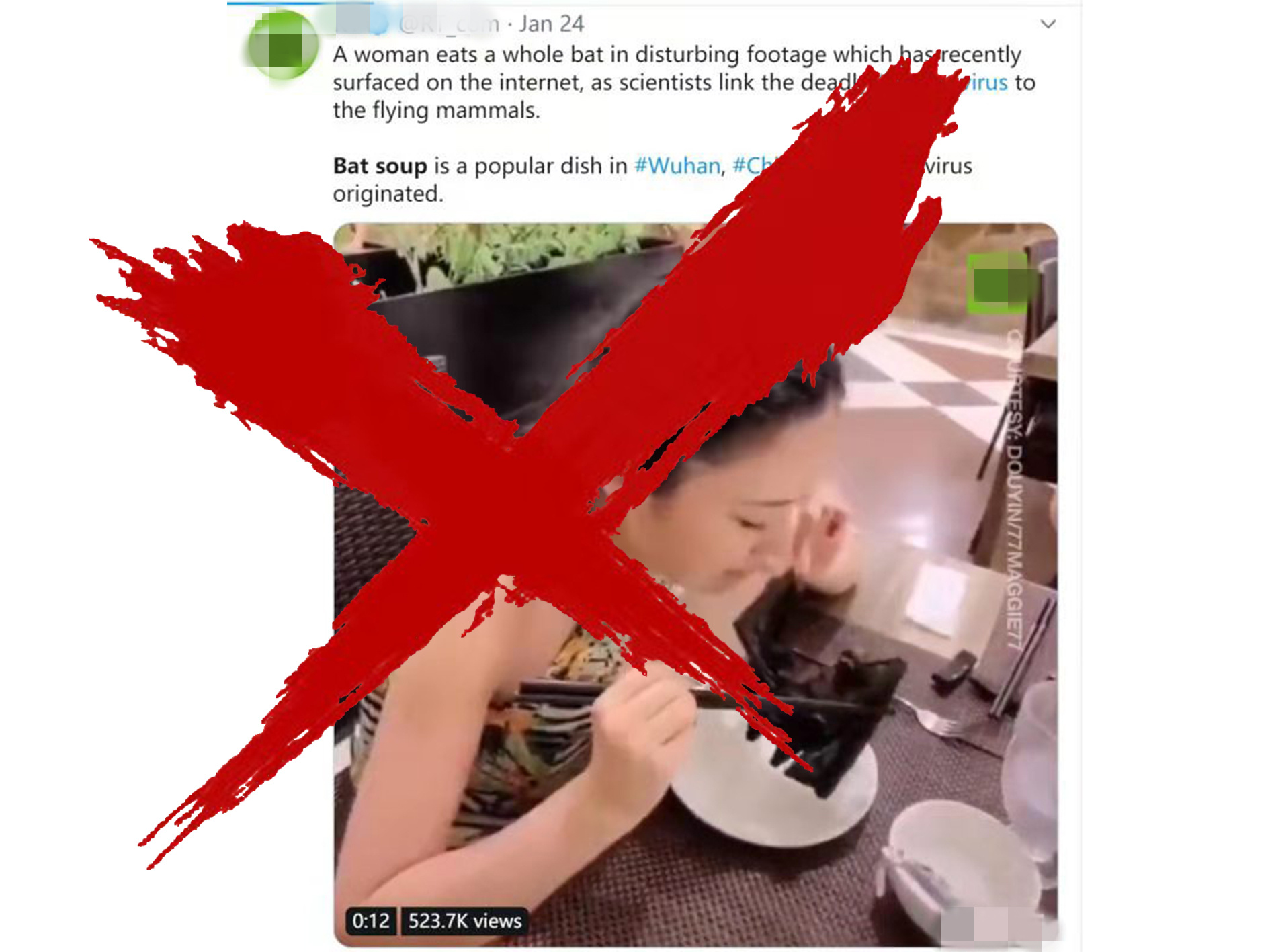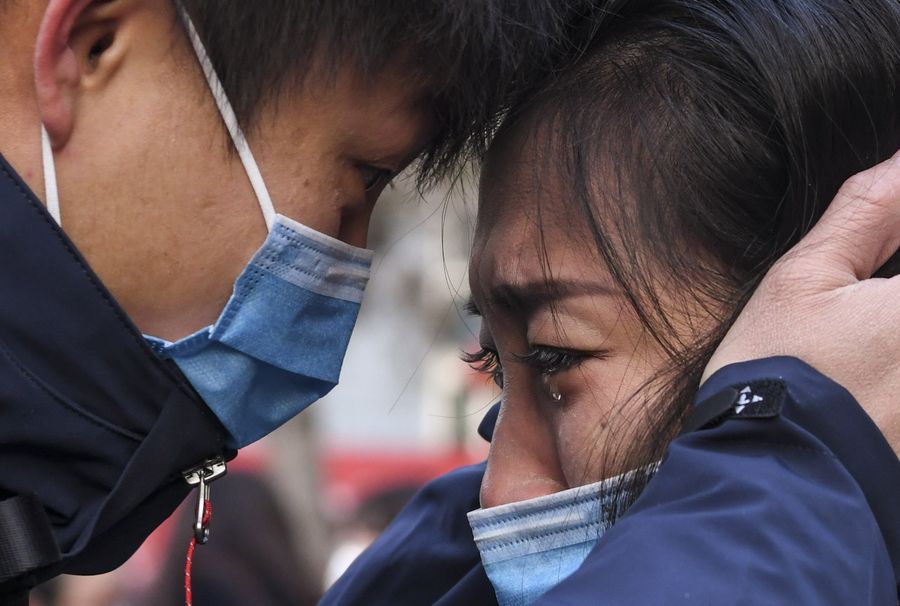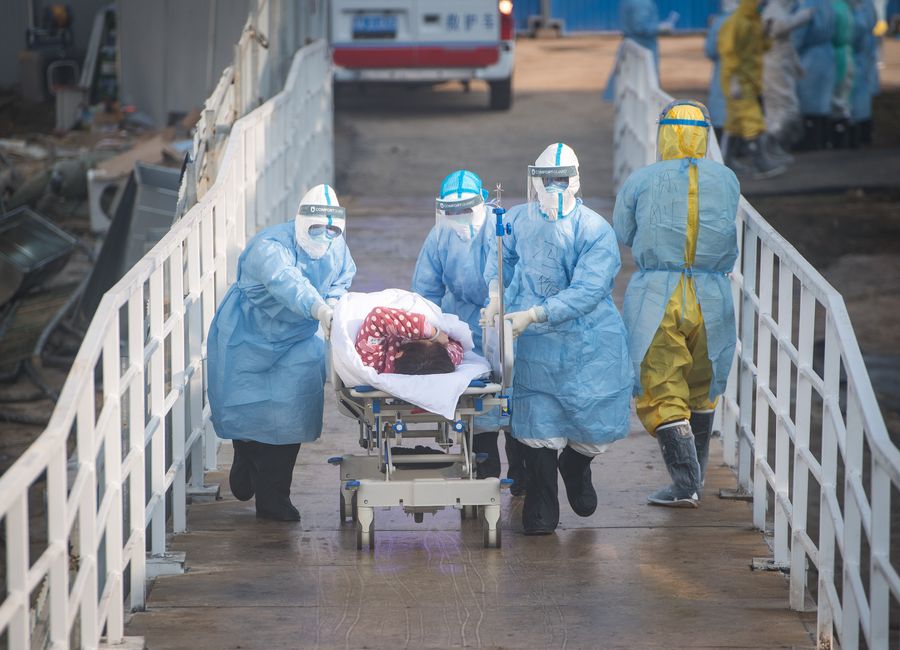The coronavirus outbreak was NEITHER caused by bat soup NOR created by biolab. The number of confirmed cases outside China is 146, NOT the jawdropping numbers splattered on social media.
Washington Times, BBC, Foreign Policy, Buzzword.com...World mainstream media are exposing a scaremongering "infodemic" of misinformation on the novel coronavirus outbreak.
BEIJING, Feb. 4 (Xinhua) -- Disinformation and false reports about the novel coronavirus (2019-nCoV) have bombarded social media and stoked unfounded fears among many netizens. Professional journalists are working to expose these rumors and relieve readers of anxieties caused more by "infodemic" than the pandemic itself.
BAT SOUP
A video of a Chinese influencer eating bat soup went viral online following the outbreak of the novel coronavirus in Wuhan, China.
Some news outlets published false reports saying that the virus may be linked to contaminated bat soup.
"But the video was not shot in Wuhan, or in China for that matter," the BBC said in a report on Jan. 30.
"Originally filmed in 2016, it shows popular blogger and travel show host Mengyun Wang during a trip to Palau, an archipelago in the western Pacific Ocean," the BBC said.

Screenshot of a video that had gone viral on social media. It was later revealed the video was filmed in Palau in 2016. Bat soup is not a dish in China. Scientists have not traced the outbreak to bats.
"The new coronavirus is believed to have emerged from illegally traded wildlife at a seafood market in Wuhan. Although bats have been named in recent research from China as a possible source of the virus, bat soup is not particularly commonplace in the country and the investigations into its exact origins continue," it added.
RACIST PROPAGANDA AGAINST CHINESE
According to an opinion published by The Guardian on Feb. 1, "the 'bat soup' canard is a classic example of disinformation - and a potent one."
"In this case, actual footage of a Chinese woman eating a bat in soup was ripped out of its actual context (a travel blogger's video from a restaurant in Palau filmed in 2016) and spuriously linked to the fact that some coronaviruses originate from bats, in order to create a narrative that appealed to a western audience's racist fascination with Chinese appetites," The Guardian said.
In Australia, a fake alert, purporting to be from the Queensland government, advised the locals to stay away from areas with a high percentage of Chinese people.
Duncan Pegg, a Member of Parliament of Queensland, posted a screenshot of the alert on Twitter and said it is "100% FAKE!!! FAKE!!! FAKE!!!"
"I don't normally like to give any credence to people who seek to malign our community but wanted to make things clear this time," he said.

Lyu Jun (L), a member of a medical team leaving for Wuhan of Hubei Province, says goodbye to his family at Xinjiang Medical University in Urumqi, northwest China's Xinjiang Uygur Autonomous Region, Jan. 28, 2020. (Xinhua/Wang Fei)
"BIOWEAPON" CONSPIRACY
Another groundless claim that has gone viral online was made by a report by the Washington Times on Jan. 26. It suggested that the virus "may have originated in a laboratory in the city of Wuhan linked to China's covert biological weapons program."
The "bioweapon" conspiracy story quoted former Israeli military intelligence officer Dany Shoham as its source.
In an article titled "The Wuhan Virus Is Not a Lab-Made Bioweapon," American news magazine Foreign Policy wrote on its website that "conspiracy theories are spreading faster than the coronavirus itself."
"While Shoham never backed up the claim made in the story that the outbreak stemmed from a biological weapon, other outlets nevertheless picked up the idea and ran with it," Foreign Policy said.
The BBC also reported that "no evidence is provided for the claim."
"PLANNED" OUTBREAK
Another conspiracy theory claimed that the novel coronavirus outbreak was manufactured by the pharmaceutical industry to sell vaccines.
"One of the first users to float these allegations was conspiracy theorist and YouTuber Jordan Sather," the BBC said.
In a widely shared tweet, Sather posted a link to a 2015 patent filed by the U.K.-based Pirbright Institute about developing a weakened version of coronavirus for potential use as a vaccine to prevent or treat respiratory diseases.

Medical workers help the first group of patients infected with the novel coronavirus move into their isolation wards at the newly built Huoshenshan (Fire God Mountain) Hospital in Wuhan, central China's Hubei Province, Feb. 4, 2020. (Xinhua/Xiao Yijiu)
However, Pirbright has released a lengthy statement on its website which clarifies that its coronavirus research extends to viruses affecting poultry and pigs -- not the variation that has emerged in humans.
"It's important to remember that coronavirus isn't one disease - it's a group of viruses," American internet media BuzzFeed reported. "The current coronavirus, believed to have originated in Wuhan, is the seventh identified type."
FALSE NUMBER OF DEATHS
Far-right American radio show host Hal Turner highly exaggerated the number of deaths and infections from the virus. In a report published on Jan. 23 on his website, Turner claimed that 112,000 people have been killed and 2.8 million people infected by the novel coronavirus, citing "Covert Intelligence sources who are former colleagues of mine from my 15 years with the FBI."
Lead Stories, one of the third-party fact checkers hired by Facebook, debunked Turner's report as "fake news."
The number of confirmed cases outside China is 146 from 23 countries, WHO announced on Monday.
WHO, SOCIAL MEDIAL GIANTS BATTLE "INFODEMIC"
"We have worked with Google to make sure people searching for information about coronavirus see WHO information at the top of their search results," Tedros said in opening remarks to the UN health agency's Executive Board meeting in Geneva.

Tedros Adhanom Ghebreyesus, director-general of the World Health Organization (WHO), speaks at a press conference after the WHO emergency committee's meeting on the novel coronavirus in China at its headquarters in Geneva, Switzerland, Jan. 22, 2020. (Xinhua/Liu Qu)
"Social media platforms including Twitter, Facebook, Tencent and Tiktok have also taken steps to limit the spread of misinformation," he said.
WHO warned late Sunday that the 2019-nCoV outbreak "has been accompanied by a massive 'infodemic'," which it defined as "an over-abundance of information, some accurate and some not, that makes it hard for people to find trustworthy sources and reliable guidance when they need it."■



